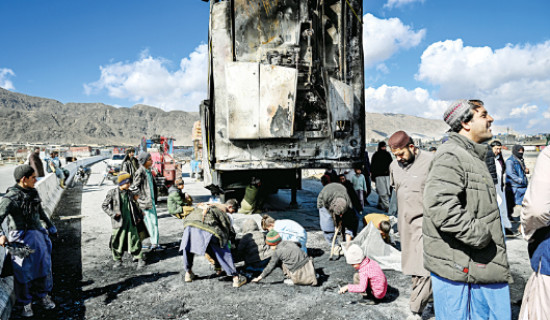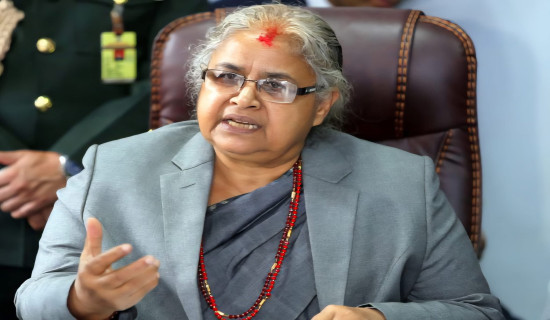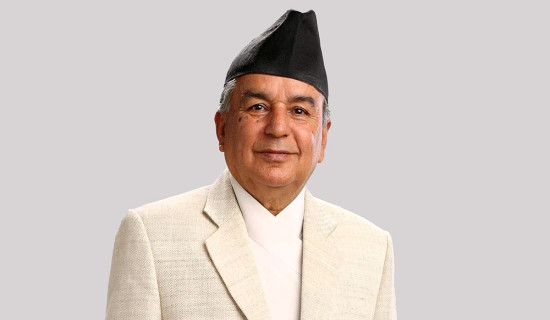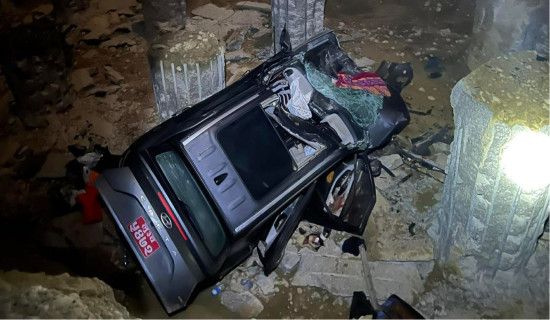- Wednesday, 4 February 2026
Nepali Congress for free and quality education: leader Mahar
By TRN Online, Kathmandu, Nov 30: Nain Singh Mahar, Central Committee Member and Chief of the Education Department of the Nepali Congress, has stressed on the government's commitment to providing free and quality education.
Addressing the third PABSON International Educational Conference, Mahar, who also heads the Congress Education Department, highlighted the crucial need for free and quality education in today's world.
"As the Nepali Congress believes in democratic socialism, it firmly believes that the state should provide education and health services to its people. The state must take this responsibility. Free and quality education is our top priority," he said. He also shared that the Congress party is committed to formulating policies that ensure free and quality education for all.
"Congress is a party that believes in liberalism. Individuals have their own potential and should have the freedom to pursue their development, and Congress is committed to this," Mahar stated. He further added, "Despite the commitments made in Nepal's constitution, we haven't seen the government solely managing the provision of free and quality education. The government faces budget constraints, and our economy is not that strong. In this context, the role played by private sector organizations like PABSON is commendable, and such a role is further required in the days to come."
Mahar emphasized the government's responsibility to ensure the security of investments made by private educational institutions. He stressed that the government should not shy away from this responsibility. He also highlighted the Congress party's unwavering commitment to protecting individual investments.
He urged that while the government ensures investment security, operators of these educational institutions should utilize the investments for the development of the institution and enhance its quality and service orientation, rather than focusing solely on personal gains.
Expressing concern about the increasing number of people leaving the country, Mahar warned of a potential crisis where Nepal might face a shortage of students in the future. "In such a situation, if we, who charge fees for education, fail to address the overall education system in Nepal, it will have a significant impact. If all the students who can afford to pay leave, private educational institutions will have no choice but to close down," he said.
He suggested exploring various models for free education, including voucher systems where the state bears the cost of education, and a system where those who can afford to pay, do so, while others receive free education.
Mahar expressed his belief that quality education leads to the development of skilled human resources who can significantly contribute to the country. He emphasized the need to adopt a 'Three P' model - Public Private Partnership - to advance the education sector.
















